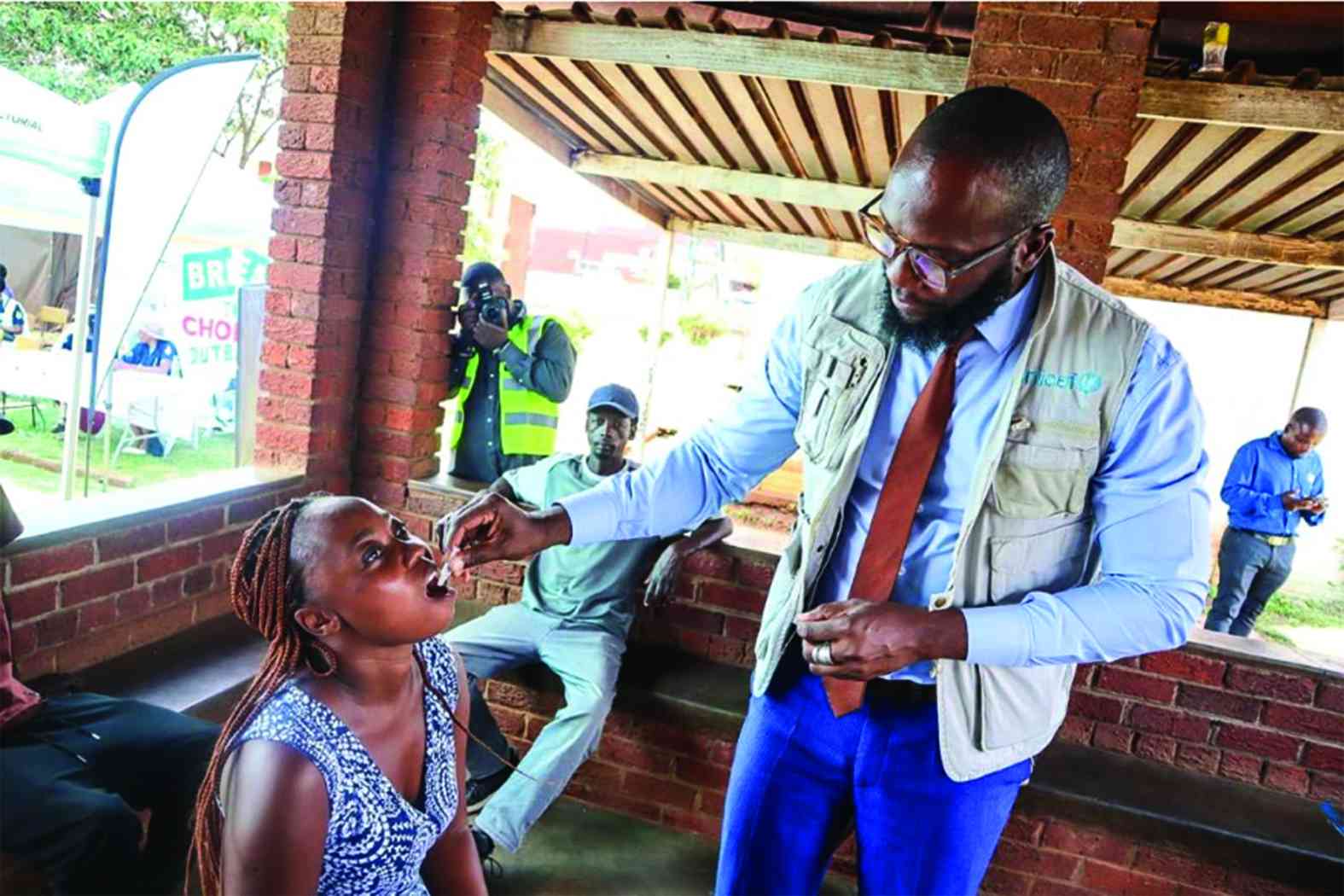
APOSTOLIC sect members have warmed up to the cholera mass vaccination exercise and pledged to lead awareness campaigns among their followers.
The oral vaccination exercise began on Monday.
The cholera outbreak, which started nearly a year ago, has mainly affected apostolic sects who are known to frown at modern medication.
As of Monday, Zimbabwe had recorded 21 454 suspected cases, 2 376 confirmed cases, 409 suspected deaths and 71 confirmed deaths.
Speaking on the sidelines of the cholera vaccination programme launch in Kuwadzana on Monday, Sabina Mutengiswa, an apostolic sect behaviour change facilitator, said their
followers had embraced the vaccination exercise after seeing the devastating effects of the disease.
“We go to schools, residential areas and churches giving awareness on cholera and encouraging people to follow cholera preventive guidelines,” Mutengiswa said.
“We also emphasise repeated treatment of drinking water.
- Zim health system is in intensive care: How it got there
- Measles threat growing
- Take your child for measles vaccination
- Residents cry foul over Ngozi Mine pollution
Keep Reading
“As for the cholera vaccine, we have realised that it helps to stop the development of cholera causing germs so we are encouraging our fellow congregants to take it up.”
Another apostolic sect member, Madzimai Cecilia, encouraged fellow members to take up the vaccine to prevent avoidable deaths.
“We are telling them that cholera is real, they should always use treated water and maintain hygiene,” she said.
“We will also go and spread news on vaccination and there is no doubt they will take it up because they have warmed up to our awareness on the subject.”
Speaking at the event, United Nations Children’s Fund (Unicef) country director, Tajudeen Oyewale, urged people to continue practising good hygiene and adhere to cholera prevention methods even after taking the vaccine.
“It’s important to also note that this vaccination works, but it works in close collaboration with all the prevention measures that have been put in place before and that includes safe hand washing, good hygiene practices, water treatment and also accessing care for those who are sick,” Oyewale said.
“In addition to the vaccine being able to prevent children from new cholera infections, it will also protect and prevent cholera infection in mothers, women and caregivers.“As we know, more than half of reported cholera cases in the country are reported in women and when women are safe, they will be able to take care of children and the household.”
Oyewale commended the partnership between the Health and Child Care ministry, World Health Organisation, GAVI and donors and partners in the cholera fight.Other partners involved in the cholera fight include the European Union, the UK government, the United States government, Japan, the CDC and larger UN support fund.







